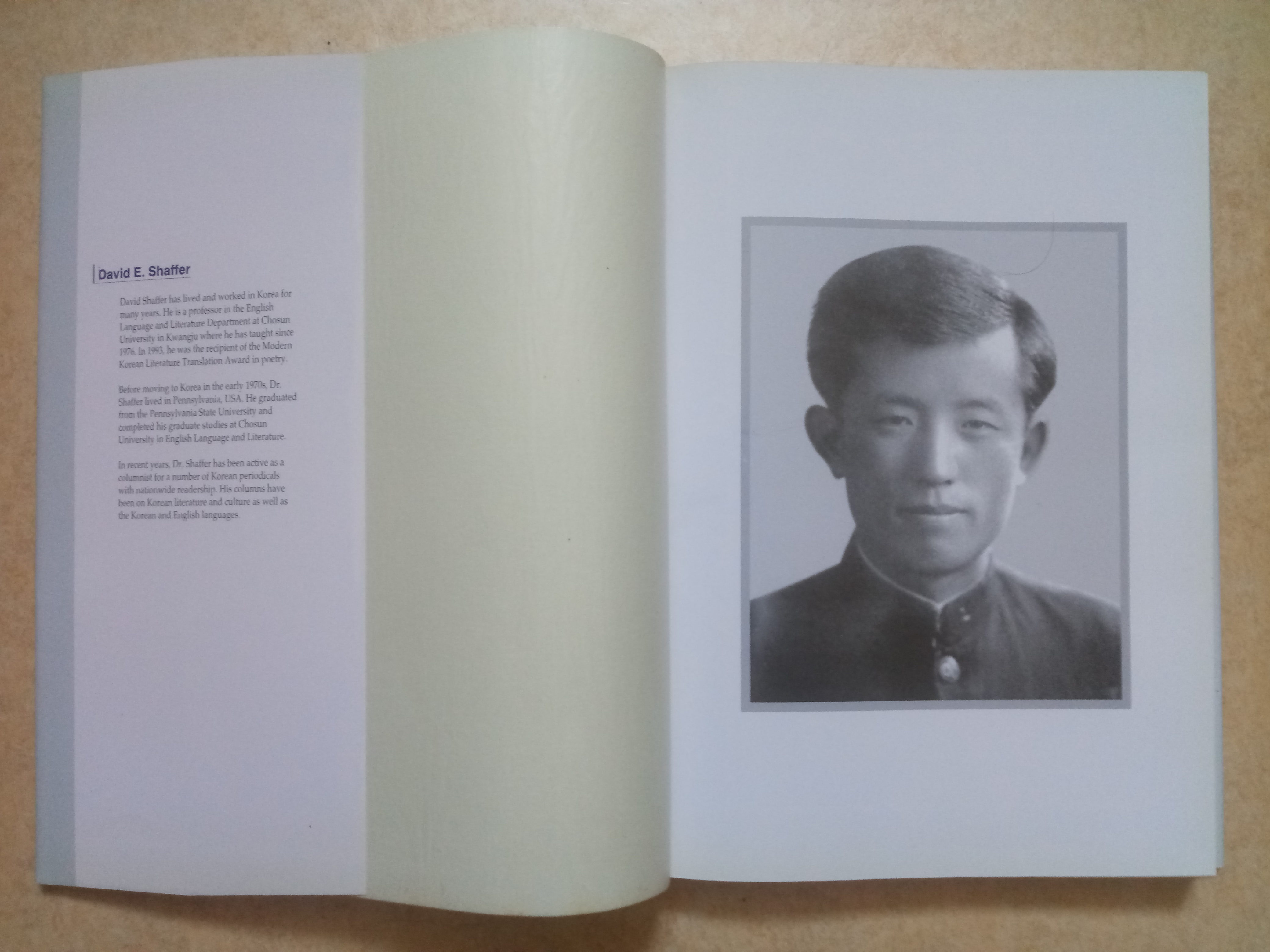Yun Dongju and His Poetry
Text and poetry translation by David E. Shaffer
Yun Dongju (윤동주) is one of Korea’s best-loved poets, as well as one of its shortest-lived (1917–1945). Born into a Christian family in the Bukkan-do area north of the Korean Peninsula, Yun attended secondary schools there and in Pyongyang. The years surrounding his graduation were his most prolific as a poet, a time when half of his works were joyful children’s poems:
FALSE ALARMS
Knock, knock, knock,
Please open the door.
I’d like to stay for the night.
The night is deep and cold,
Who could be there?
The door is opened to see
that Blackie’s tail
had sounded a false alarm.
Cluck, cluck, cluck,
An egg has been laid!
Small Fry, come get your egg!
Small Fry goes running to see…
An egg? What egg?!
That old hen,
in broad daylight,
brazenly sounded a false alarm.
(1937)
As did many independence-minded families at the beginning of Japanese colonial rule, Yun’s family left the tightly controlled peninsula for the lighter control of Bukkan-do before Yun’s birth. Though heavily veiled, his anti-Japanese feelings and sense of futility in waiting for independence can be detected in his early writings:
NO TOMORROW
On hearing “tomorrow, tomorrow,”
About it I asked.
“After the night sleeps, when the day breaks,
it’s tomorrow,” came the reply.
I, who have searched for a new day,
woke from my sleep and looked around.
It was not then tomorrow
but today!
Friends,
there is no tomorrow!
……………
(December 24, 1934)
In 1938, Yun entered the Korean Department at Yonhui College (now Yonsei University) in Seoul. During this time, both his Christianity – through interaction with missionaries – and his independence activism strengthened. It was also at this time that Yun “published” his first collection of poetry: 100 handwritten copies of 19 collected poems, entitled The Heavens, the Winds, the Stars, and Poetry. As in many pieces of this collection, his faith and activism peek through (just enough to escape the eye of the colonial rulers) in The Road, allowing us to detect that it is human dignity and Korean independence that Yun lives to recover:
THE ROAD
It is lost!
What nor where, I do not know;
With two groping hands in pockets,
Down the road I go.
With stone after stone after stone in endless procession
Along the stone wall the road does run.
The wall, with its iron gate tightly closed,
Casts its long shadow over the road;
From morning to evening,
From evening to morning, the road runs on.
Groping at the wall, tears gush forth;
Looking up, the sky, to my shame, is blue.
The reason I walk this road with not a blade of grass
Is because I am left out beyond the wall;
And the reason that I live is solely
To recover that which is lost.
(September 30, 1941)
In 1942, Yun entered the English Department of Rikkyo University in Japan and soon became involved in a Korean independence cell there. Very little of his poetry survived confiscation by Japanese authorities upon his arrest and incarceration in 1943. But even before Yun crossed into the Japanese heartland (with the Japanese name he had been forced to assume), he foresaw Korean independence and his own demise, as expressed in the final stanzas of A Night Counting Stars:
A NIGHT COUNTING STARS
(last stanzas)
Longing for I know not what,
On this hill bathed in starlight
I have written his name
And covered it with earth.
Indeed, for I am like the insects crying through the night,
Bemoaning their shameful names.
But when the winter passes and to my star comes spring,
Thick grass will proudly grow on this hill
In which my name is buried
As green as it does on graves.
(November 5, 1941)
Yun never lived to see that green grass. He died a slow death from a poison regimen in a Japanese prison in February 1945, just months before the surrender of Imperial Japan. But his name lives on, forever green.
The Author
David Shaffer is a long-time educator in Gwangju, with interests in Korean culture, history, language, and poetry. He was awarded first prize in the poetry division of the 24th Modern Korean Literature Translation Awards (1993). Dr. Shaffer is also the author/translator of The Heavens, the Winds, the Stars, and Poetry: The Works of Yun Tong-ju, Korean Patriot and Poet (1999, Hakmun), which contains commentary on Yun’s life and poetry, in addition to an English translation of the complete surviving works of the poet.








Thank you for allowing us to read YUN Dongju in Englsih.